Search Results
Search
Filter results
Advanced Filters
Your search returned 883 Solutions
-
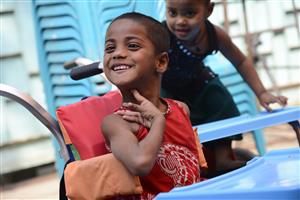
Access to basic health services for children with cerebral palsy in Bangladesh
Together with partners, CSF Global started the first development centre in rural Bangladesh for children with cerebral palsy. The centre offers therapeutic service to the children and provides training to the caregiver. The children are identified by trained community volunteers using the "Key Informant Method".
CSF - Child Sight Foundation - Global, Early Childhood Service Centres, Bangladesh -
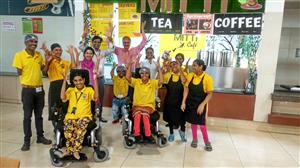
Fast-growing café chain with a majority of employees with disabilities
Since 2017, Mitti Café has been providing hospitality training and employment opportunities in accessible cafés established on the premises of educational institutions or private-sector companies. As of 2020 there are 12 Mitti Cafés, which are managed and staffed entirely by adults with disabilities.
Mitti Cafe, MITTI Café, India -
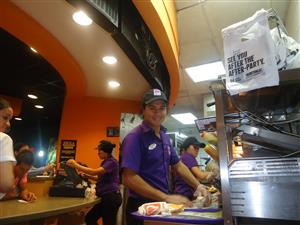
Boosting the employability of Costa Ricans with disabilities
Initiated in 2012, the Plan comprises measures like employment services, increasing workplace demand as well as encouraging development of enterprises. By 2014, 1,653 persons received training services, 49 started their own business and the Network of Inclusive Business expanded to 58 members.
National Employment Directorate, Ministry of Work and Social Security in Costa Rica, National Plan for Work Inclusion of People with Disabilities of 2012-2015, Ministry of Work and Social Security, Costa Rica, Costa Rica -
On-Demand Accessible Transportation in Chicago
Open Taxis is a 24/7, 365 days a year operation with dispatchers on-site to assist with passenger ride requests and coordinate timely transportation among drivers, providing passengers with on-demand, accessible transport options in Chicago. In 2017 more than 300 accessible taxis were operating for Open Taxis.
Open Doors Organization, Open Taxis, United States of America -
Providing free adaptations and prosthetics for amputees and persons with mobility issues
Jaipur Foot Organization provides free prosthetic devices and applications. In 1975, there were 59 prosthetic devices, today about 60,000 people annually receive specially designed prosthetic devices, wheelchairs etc. and even financial support. This is mainly in rural areas of India and in 27 other countries.
Jaipur Foot Organization (BMVSS), BMVSS, India -
Supported internship
The programme takes place entirely within a business setting where students participate in three internships to explore a variety of career options. This total workplace immersion facilitates a seamless combination of classroom instruction, career exploration and hands-on, worksite-based training and support.
Cincinnati Children's Hospital Medical Centre, Supported internship, United States of America -
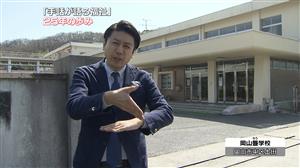
Regular sign language TV programme on the topics of welfare and community
Sign Language Talks Welfare is a regional monthly TV programme in Japan with sign language interpretation, provided by Okayama Broadcasting. It informs the deaf community and is produced mainly by deaf people themselves. Launched in 1993, the programme is financed entirely by advertising and does not need subsidies.
OHK - Okayama Broadcasting Co., Ltd, Sign Language Talks Welfare Program, Japan -
'The most accessible and inclusive office building in the whole world' - a showcase from Denmark of the fact that it is possible to build a 100% accessible office building at a price that does not exceed the cost of an average building built by public authorities.
The office building takes the accessibility needs of all groups with all kinds of impairments into consideration and represents the inclusion of accessibility as both concept and ideology. The future users were involved in the process; therefore, many elements included in the building are user-driven innovations.
DPOD - Disabled Peoples Organisations Denmark, The most accessible office building in the world, Denmark -
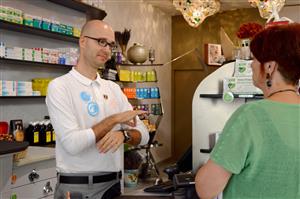
Pharmacy specialized in employment and services for deaf people
Since taking on the first deaf apprentice in 2008, the Vienna-based pharmacy has now trained two and employed a third deaf pharmacist. In addition, sign language courses were offered for hearing staff. For customers, the pharmacy offers barrier-free health information, including videos in sign language.
Marien Pharmacy, Training and counselling for deaf people, Austria -
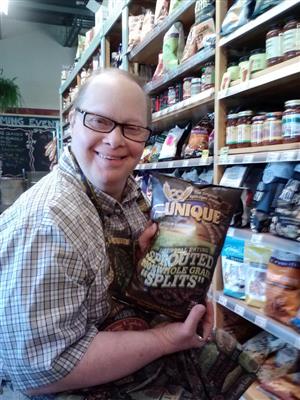
Long-term inclusion in the open labour market, state-wide
Begun in 1983, the programme provides individually tailored support and thoughtful job matches for people with intellectual disabilities. By 2002, Vermont had closed all sheltered workshops. By 2016, 48 per cent of Vermonters receiving developmental disabilities services are employed in the regular workforce and paid at minimum wage or higher.
University of Vermont, Center on Disability and Community Inclusion, Supported Employment Programme of 1983 Department of Disabilities, Aging and Independent Living, Agency of Human Services, Vermont, USA, United States of America
- Page 1
- Page 2
- Page 3
- Page 4
- Page 5
- Page 6
- Page 7
- Page 8
- Page 9
- Page 10
- Page 11
- Page 12
- Page 13
- Page 14
- Page 15
- Page 16
- Page 17
- Page 18
- Page 19
- Page 20
- Page 21
- Page 22
- Page 23
- Page 24
- Page 25
- Page 26
- Page 27
- Page 28
- Page 29
- Page 30
- Page 31
- Page 32
- Page 33
- Page 34
- Page 35
- Page 36
- Page 37
- Page 38
- Page 39
- Page 40
- Page 41
- Page 42
- Page 43
- Page 44
- Page 45
- Page 46
- Page 47
- Page 48
- Page 49
- Page 50
- Page 51
- Page 52
- Page 53
- Page 54
- Page 55
- Page 56
- Page 57
- Page 58
- Page 59
- Page 60
- Page 61
- Page 62
- Page 63
- Page 64
- Page 65
- Page 66
- Page 67
- Page 68
- Page 69
- Page 70
- Page 71
- Page 72
- Page 73
- Page 74
- Page 75
- Page 76
- Page 77
- Page 78
- Page 79
- Page 80
- Page 81
- Page 82
- Page 83
- Page 84
- Page 85
- Page 86
- Page 87
- Page 88
- Page 89